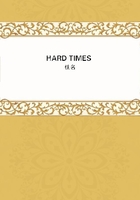
第15章 SLEARY'S HORSEMANSHIP(5)
'Thleary. Thath my name, Thquire. Not athamed of it. Known all over England, and alwayth paythe ith way.'
'Must find out Mr. Sleary, who would then let him know where you went. I should have no power of keeping you against his wish, and he would have no difficulty, at any time, in finding Mr. Thomas Gradgrind of Coketown. I am well known.'
'Well known,' assented Mr. Sleary, rolling his loose eye. 'You're one of the thort, Thquire, that keepth a prethiouth thight of money out of the houthe. But never mind that at prethent.'
There was another silence; and then she exclaimed, sobbing with her hands before her face, 'Oh, give me my clothes, give me my clothes, and let me go away before I break my heart!'
The women sadly bestirred themselves to get the clothes together -it was soon done, for they were not many - and to pack them in a basket which had often travelled with them. Sissy sat all the time upon the ground, still sobbing, and covering her eyes. Mr.
Gradgrind and his friend Bounderby stood near the door, ready to take her away. Mr. Sleary stood in the middle of the room, with the male members of the company about him, exactly as he would have stood in the centre of the ring during his daughter Josephine's performance. He wanted nothing but his whip.
The basket packed in silence, they brought her bonnet to her, and smoothed her disordered hair, and put it on. Then they pressed about her, and bent over her in very natural attitudes, kissing and embracing her: and brought the children to take leave of her; and were a tender-hearted, simple, foolish set of women altogether.
'Now, Jupe,' said Mr. Gradgrind. 'If you are quite determined, come!'
But she had to take her farewell of the male part of the company yet, and every one of them had to unfold his arms (for they all assumed the professional attitude when they found themselves near Sleary), and give her a parting kiss - Master Kidderminster excepted, in whose young nature there was an original flavour of the misanthrope, who was also known to have harboured matrimonial views, and who moodily withdrew. Mr. Sleary was reserved until the last. Opening his arms wide he took her by both her hands, and would have sprung her up and down, after the riding-master manner of congratulating young ladies on their dismounting from a rapid act; but there was no rebound in Sissy, and she only stood before him crying.
'Good-bye, my dear!' said Sleary. 'You'll make your fortun, Ihope, and none of our poor folkth will ever trouble you, I'll pound it. I with your father hadn't taken hith dog with him; ith a ill-conwenienth to have the dog out of the billth. But on thecond thoughth, he wouldn't have performed without hith mathter, tho ith ath broad ath ith long!'
With that he regarded her attentively with his fixed eye, surveyed his company with his loose one, kissed her, shook his head, and handed her to Mr. Gradgrind as to a horse.
'There the ith, Thquire,' he said, sweeping her with a professional glance as if she were being adjusted in her seat, 'and the'll do you juthtithe. Good-bye, Thethilia!'
'Good-bye, Cecilia!' 'Good-bye, Sissy!' 'God bless you, dear!'
In a variety of voices from all the room.
But the riding-master eye had observed the bottle of the nine oils in her bosom, and he now interposed with 'Leave the bottle, my dear; ith large to carry; it will be of no uthe to you now. Give it to me!'
'No, no!' she said, in another burst of tears. 'Oh, no! Pray let me keep it for father till he comes back! He will want it when he comes back. He had never thought of going away, when he sent me for it. I must keep it for him, if you please!'
'Tho be it, my dear. (You thee how it ith, Thquire!) Farewell, Thethilia! My latht wordth to you ith thith, Thtick to the termth of your engagement, be obedient to the Thquire, and forget uth.
But if, when you're grown up and married and well off, you come upon any horthe-riding ever, don't be hard upon it, don't be croth with it, give it a Bethpeak if you can, and think you might do wurth. People mutht be amuthed, Thquire, thomehow,' continued Sleary, rendered more pursy than ever, by so much talking; 'they can't be alwayth a working, nor yet they can't be alwayth a learning. Make the betht of uth; not the wurtht. I've got my living out of the horthe-riding all my life, I know; but Iconthider that I lay down the philothophy of the thubject when Ithay to you, Thquire, make the betht of uth: not the wurtht!'
The Sleary philosophy was propounded as they went downstairs and the fixed eye of Philosophy - and its rolling eye, too - soon lost the three figures and the basket in the darkness of the street.